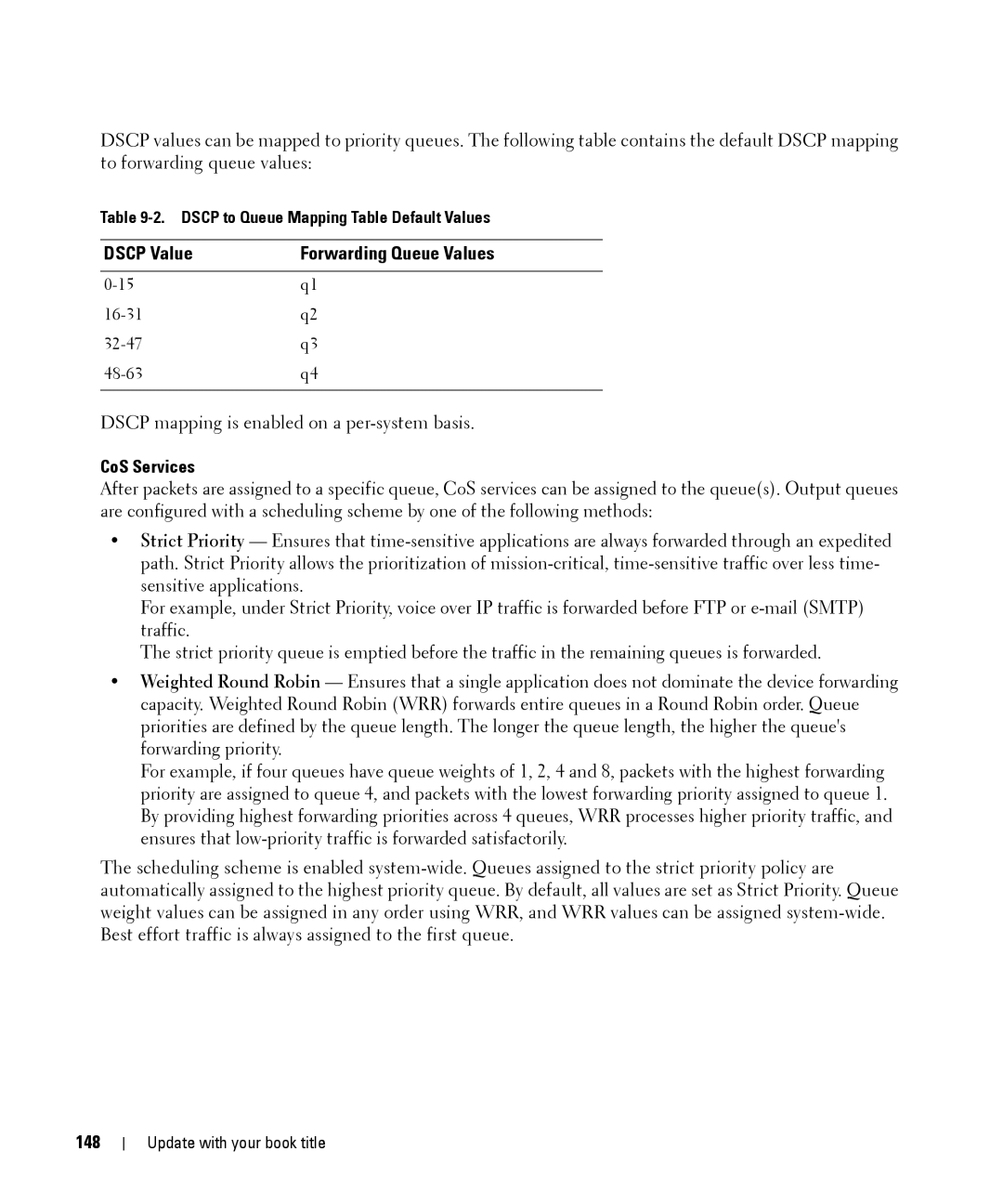DSCP values can be mapped to priority queues. The following table contains the default DSCP mapping to forwarding queue values:
Table 9-2. DSCP to Queue Mapping Table Default Values
DSCP Value | Forwarding Queue Values |
|
|
q1 | |
q2 | |
q3 | |
q4 | |
|
|
DSCP mapping is enabled on a
CoS Services
After packets are assigned to a specific queue, CoS services can be assigned to the queue(s). Output queues are configured with a scheduling scheme by one of the following methods:
•Strict Priority — Ensures that
For example, under Strict Priority, voice over IP traffic is forwarded before FTP or
The strict priority queue is emptied before the traffic in the remaining queues is forwarded.
•Weighted Round Robin — Ensures that a single application does not dominate the device forwarding capacity. Weighted Round Robin (WRR) forwards entire queues in a Round Robin order. Queue priorities are defined by the queue length. The longer the queue length, the higher the queue's forwarding priority.
For example, if four queues have queue weights of 1, 2, 4 and 8, packets with the highest forwarding priority are assigned to queue 4, and packets with the lowest forwarding priority assigned to queue 1. By providing highest forwarding priorities across 4 queues, WRR processes higher priority traffic, and ensures that
The scheduling scheme is enabled
